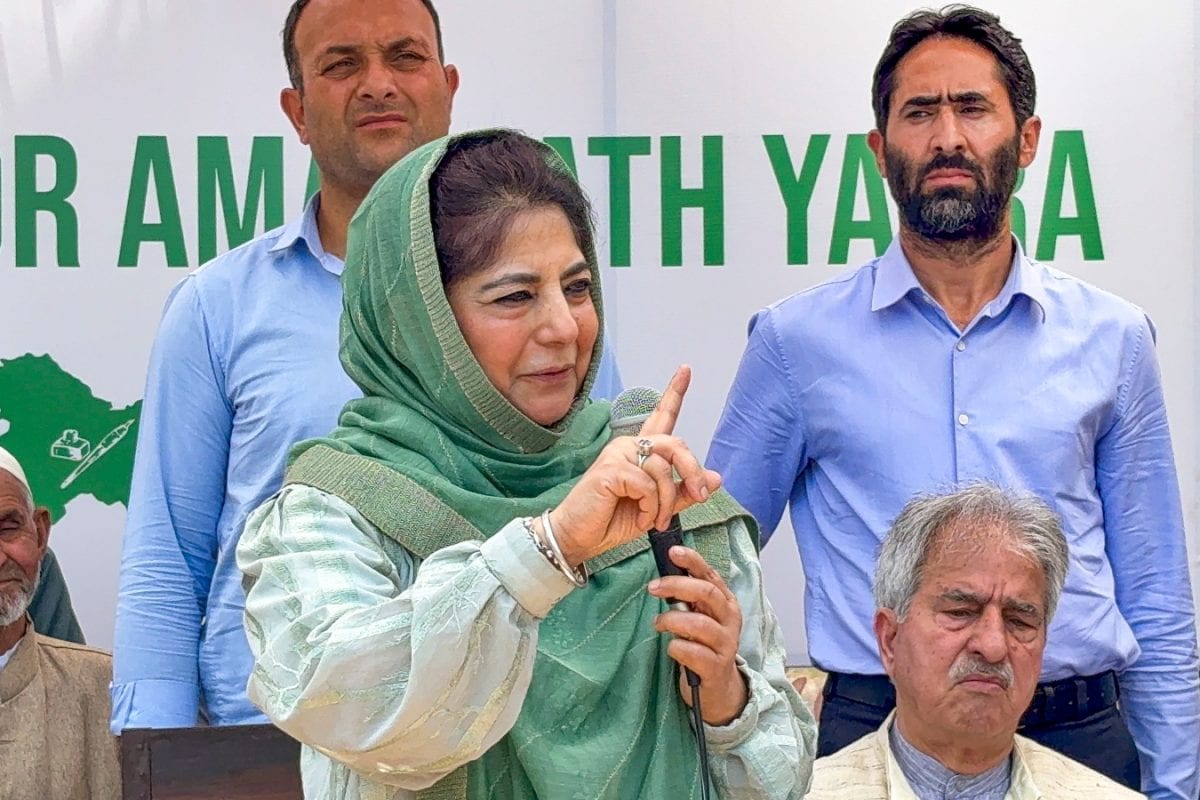

The annual Amarnath Yatra, a significant pilgrimage for Hindu devotees, is once again in the spotlight, with discussions centering on the crucial role of Kashmiri locals in ensuring the safety and well-being of the pilgrims. As the Yatra approaches, political figures and community leaders are emphasizing the historical importance of local support and hospitality in making the pilgrimage a success.
Mehbooba Mufti, the former Chief Minister and president of the Peoples Democratic Party (PDP), has been particularly vocal about the responsibility of Kashmiri locals in safeguarding the Amarnath Yatra. During a recent interaction with stakeholders in Pahalgam, a key resort town along the Yatra route, Mufti underscored the critical role of locals in facilitating the annual pilgrimage. She stated that while security forces provide a layer of protection, the true protectors of the Yatra are the people of Kashmir, who have braved challenging weather conditions for years to support the pilgrims.
Mufti highlighted the Yatra as a symbol of Kashmir's long-standing communal harmony, praising the historical role of Kashmiri Muslims in assisting Hindu pilgrims. She appealed to the people of Pahalgam to continue their tradition of hospitality, make necessary arrangements for the pilgrims, and help restore confidence in Kashmir's tourism sector. She stressed that the security of the Yatris is a shared responsibility, and that the actual responsibility for a peaceful Amarnath Yatra lies with every inhabitant of Pahalgam.
This year, the Amarnath Yatra is scheduled to take place from July 3 to August 9, spanning a reduced duration of 38 days. This adjustment comes in response to heightened security concerns, particularly following a terror attack in Pahalgam in May. In light of these concerns, authorities have implemented unprecedented security measures to ensure the safety of devotees. These measures include the deployment of a comprehensive security apparatus, advanced surveillance technology, and enhanced coordination among various security agencies.
Despite the increased security measures, the emphasis on the role of Kashmiri locals remains paramount. Their involvement goes beyond logistical support, embodying the spirit of "Kashmiriyat," a unique cultural ethos of tolerance, brotherhood, and compassion. Locals provide essential services, set up community kitchens (langars), and offer assistance to pilgrims along the challenging routes.
The historical context of the Yatra also highlights the significance of local involvement. Kashmiri Muslims have been instrumental in the Yatra's operations for centuries, providing services as workers, pony owners, and palanquin-bearers. In fact, the Amarnath cave itself was said to have been discovered by a Kashmiri Muslim family in the 15th century.
In addition to security and logistical support, the Amarnath Yatra also has economic implications for the region. The recent decline in tourism, exacerbated by the Pahalgam terror attack, has left many local businesses struggling. Therefore, a successful and peaceful Yatra is seen as crucial for reviving the tourism sector and providing economic relief to the local population.
As the Amarnath Yatra 2025 approaches, the collaborative effort between security forces and Kashmiri locals is essential for ensuring a safe and spiritually fulfilling experience for the pilgrims. The emphasis on local responsibility, combined with enhanced security measures, reflects a comprehensive approach to safeguarding this significant pilgrimage and upholding the values of communal harmony and hospitality that define the region.